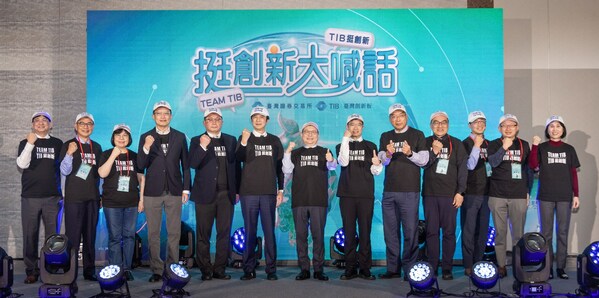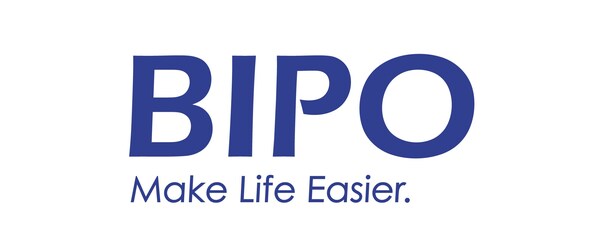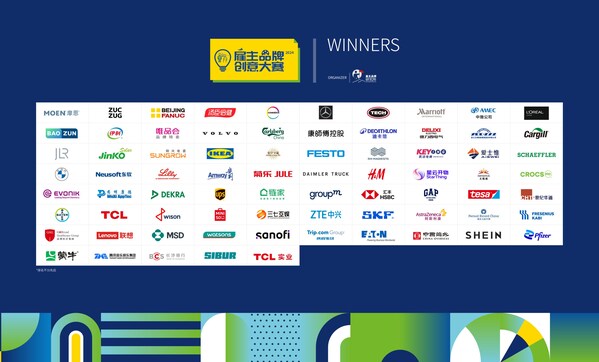China in Foreign Eyes
2023 Panda Cup Foreign Student Essay Contest awards ceremony held in Hangzhou
HANGZHOU, China, Dec. 25, 2023 /PRNewswire/ — This is a report from China Report ASEAN:
On November 25, the awards ceremony for the 2023 Panda Cup Foreign Student Essay Contest took place at the Zhejiang University of Media and Communications (ZUMC) in Hangzhou, capital of east China’s Zhejiang Province. Attending the ceremony were Gao Anming, vice president and editor-in-chief of China International Communications Group (CICG), Luo Lili, a leading member of the Publicity Department of the CPC Zhejiang Provincial Committee and deputy director of the Zhejiang Provincial Government Information Office, Zhao Jun, editor-in-chief of the CICG Center for the Asia-Pacific (CICG Asia-Pacific), Xu Rong, editor-in-chief of the Foreign Languages Press (FLP), and Yang Liping, secretary of the Party Committee of the ZUMC. Also attending were representatives of the award-winning foreign students, their teachers, and the media.
Chinese Story Tellers
Gao Anming delivered a speech at the ceremony. He called foreign students in China witnesses of China’s national development, explorers of Chinese culture, tellers of Chinese stories, and participants in the exchanges and mutual learning between the Chinese civilization and other civilizations. As a comprehensive international communications organization, CICG has always been committed to promoting youth exchange and mutual learning between China and foreign countries. In the future, it will continue to strengthen cooperation with domestic and foreign institutions to enhance people-to-people exchanges and deepen mutual learning among civilizations in various forms including translation and publishing, academic research, and exchanges and dialogue. He expressed high hopes for the award-winning foreign students and offered them some words of advice: “First, continue with more in-depth exploration of the country to become a ‘China hand.’ Second, continue with more friendly exchanges with the Chinese people to become an ‘old friend.’ Third, continue sharing your stories with your families and friends to serve as a ‘young envoy.'”
Luo said in her speech that Zhejiang has always been an important window through which the world can observe and understand China, as well as a popular destination for young students from all over the world, with more than 20,000 foreign students from 179 countries now studying in the province. Zhejiang has actively innovated methods of cultural exchange and mutual learning, expanded channels and carriers for young foreign students to learn more about the province, and built a more influential and solid international circle of friends. The Panda Cup Foreign Student Essay Contest has an important impact on strengthening cultural exchange between China and foreign countries, enhancing mutual understanding, and showcasing China to the world. She expressed hope that foreign students would experience Zhejiang’s development, explore Zhejiang’s culture, and contribute to people-to-people ties with the local people. She predicted that the students would be able to see a vivid image of China in the new era from their unique perspectives.
In her speech, Zhao Jun explained that the CICG Asia-Pacific is a media matrix for the publication and administration of journals, websites, and social media clusters in Chinese, English, Japanese, Korean, Esperanto, and the languages of ASEAN countries. It has cooperated with Chinese and foreign institutions on organizing multi-level and multi-form international cultural and people-to-people exchange activities. Since its inception, the Panda Cup Foreign Student Essay Contest has attracted participation from youth from different countries as well as the attention and support from prominent foreign figures, friendly institutions, and diplomatic missions in China. This year, international students from 27 countries on four continents participated in the contest with youthful vigor and creative passion. In the future, CICG Asia-Pacific will continue to work with all cooperation partners to make the contest more attractive for young students. Participation in the contest and relevant activities will contribute to people-to-people exchanges and mutual trust between China and foreign countries.
Xu Rong dubbed the participants “youth power” telling Chinese stories and said that each essay is a beautiful witness to exchanges and mutual trust. As the oldest and largest international-facing publisher of the People’s Republic of China, the FLP has always undertaken the important mission of “presenting China in foreign languages and communicating with the world with books.” The FLP has worked with Zhejiang-based publishers to produce a multilingual book, The New Stories of Zhejiang, and an English edition of Hangzhou Stories which is dedicated to the 19th Asian Games in Hangzhou. Copies of both books were presented to the award winners at the ceremony. Xu predicted that the publications would help readers better understand the city of Hangzhou and the province of Zhejiang. Planning has begun to compile the award-winning Panda Cup essays into volumes in Chinese and foreign languages to help more foreigners develop a better understanding of a credible, amicable, and respectable China.
Yang Liping opined that higher education institutions have a vital role to play as the main base for cultivating international students in China. Considering the dual role of foreign students as both “audience” and “communicator” of Chinese stories, ZUMC has created a multi-dimensional field to empower foreign students with the ability to listen to, understand, and tell Chinese stories. Yang called the essay contest significant for in-depth exchange between the Chinese and foreign cultures. She expressed the hope that more people would become envoys of friendship and cooperation between China and foreign countries through the platform.
Enthusiastic Participation
The 2023 Panda Cup Foreign Students Essay Contest was supervised by the CICG and the Publicity Department of the CPC Zhejiang Provincial Committee, sponsored by the CICG Asia-Pacific and the FLP, and organized by ZUMC. Since the contest was launched in August, many foreign students in China have actively participated with the strong support of relevant institutions. More than 1,300 essays by students, majoring in 24 disciplines at 31 schools, were sent to the organizing committee. After evaluation, four first prizes, 10 second prizes, 20 third prizes, 28 excellent mentor awards, and 10 excellent organization awards were announced.
Christian Wagner is a German student at Renmin University of China. His essay “10 Years of Belt & Road: China’s Poverty Reduction Strategy as a Carrier of Hope in a Shared Future of Humankind” won first prize. To compile the essay, he visited China’s rural areas and conducted in-depth research on the Chinese government’s policies to empower people to eliminate poverty and improve their lives. “Our duty is not only to tell Chinese stories through the Panda Cup,” said Wagner, “but to contribute to the mutual understanding of the world.”
Tan Wan Xuan is a Malaysian student at the ZUMC. In her essay, she related how her grandmother ate Western food with chopsticks. She was quite confused with her grandma’s obsession with chopsticks but later came to understand that the obsession was merely maintaining a connection with her native land. “The Panda Cup has provided foreign students a platform to share their experiences in China,” she said at the awards ceremony. “Through this contest, I deeply felt the significance of China’s development and the friendly relations between Malaysia and China. We are full of expectations for creating value in future cooperation and friendship.”
Liu Thi Xuan is a senior Vietnamese student majoring in Chinese language at the International College of Guangxi University. She was pleasantly surprised to be awarded first prize. “When I related stories about my wonderful life in China to my sisters in Vietnam, they were full of envy and expectations,” said Liu. “Thank you very much for the Panda Cup. This honor will inspire me to move forward. I hope I can one day help my sisters back home come to China and pursue their own dreams.”
Gilbert Vincent Tong is an Indonesian student at the Zhejiang Yuexiu University of Foreign Languages, who won first prize for an essay titled “Sipping Life with Shaoxing Wine.” Explaining why he wrote about Shaoxing wine, Tong said that the rice wine tastes similar to a wine from his hometown in Indonesia, so it often made him homesick. “If not for my study and life experience in China, it would be impossible for me to appreciate and understand the subtle meaning of this ancient yellow rice wine,” he said. After graduation next year, Tong plans to find a job in China and become “a new Zhejiang resident.”
Bui Hai Mung is a Vietnamese student at the Central University of Finance and Economics, whose contribution to the contest was neither in English nor Chinese, but in Esperanto. She won second prize for an essay titled “One More Language, One More Life.” She explained that L. Zamenhof, the founder of Esperanto, the language of peace, believed that if people could understand each other, hatred could be eliminated and world peace achieved. She imagined people around the world speaking the common language of Esperanto to realize this ideal. “This prize will encourage me to learn more about Chinese language and culture,” she said. “I will work harder to spread Chinese culture in Vietnam and the whole world through Esperanto.”
The Panda Cup is an essay contest for foreign youth sponsored by CICG Asia-Pacific. Since its inception in 2014, the contest has taken place in Japan, South Korea, Thailand, and other countries and become a well-known brand for enhancing exchanges and friendship between Chinese and foreign youth. In August this year, the Panda Cup was opened to the foreign students in China for the first time, which enriched the format of this event, expanded the scope of dissemination, and further increased its international influence.
At the end of the awards ceremony, some students from ZUMC staged a performance reciting excerpts of award-winning essays, which helped the audience better understand the stories foreign students told about their lives in China including progress and achievements made by the initiatives of rural revitalization and Belt and Road cooperation.
After the ceremony, the award-winning foreign students embarked on a field trip to Qingtian County and Tongxiang City in Zhejiang to see achievements in rural revitalization, intangible cultural heritage protection, and modernization drive. The trip was also a great opportunity for Chinese and foreign youth to enhance friendship and mutual understanding.

















